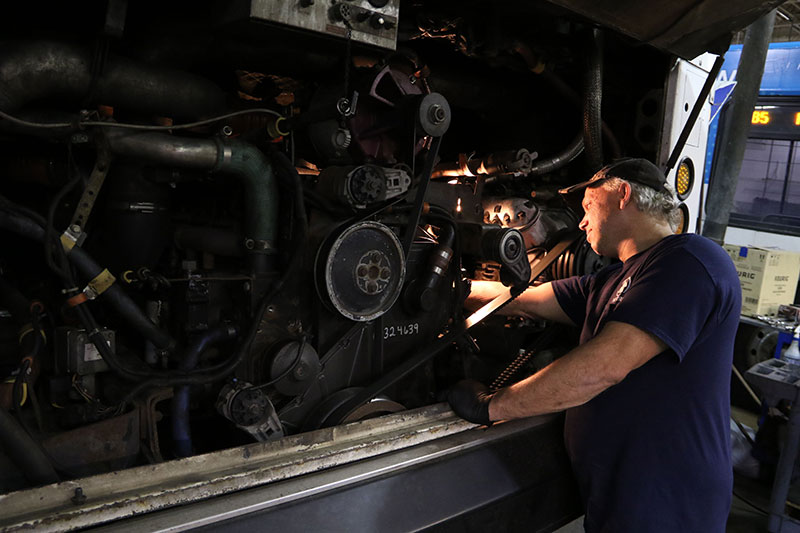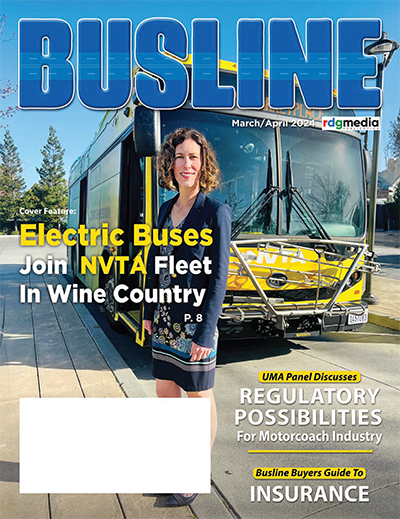Key Steps To Properly Maintaining A Fleet Of Transit Vehicles

Highly skilled technicians play a vital role in keeping a public transportation fleet well maintained.
By Jeff Mundstock, Cincinnati (OH) Metro Director of Fleet and Facilities
A transit system is only as convenient and reliable as its vehicles allow. That’s why vehicle maintenance is a critical component to any public transportation service.
In our post-pandemic world, the transit game has changed monumentally. This means new thinking about how we use innovations in the IT, preventative and work force spaces to ensure we are staying cutting edge and offering our customers the very best.
Here are four top strategies to keeping a well-maintained and well-serviced fleet:
1). Preventative maintenance is key — This is about as 101 as you can get, but the basics are always where we need to start. Anytime an agency deviates from a preventative maintenance schedule, it’s asking for trouble. Not only does it keep your existing fleet in tip-top shape, but it also helps with planning for certain parts usage and keeps the agency nimble enough to adjust inventory levels for those planned maintenance events without disrupting service.
2). Review the data — We are knee-deep in the information age, and for good reason. Any way you can collect and track maintenance data — whether it’s via telematics or just a simple spreadsheet — will help uncover trends and reveal patterns within your system’s individual fleet that you might not have discovered otherwise.
3). Invest in your workforce — The labor market is not what it used to be pre-COVID, and skilled labor is becoming more and more difficult to come by. Devoting resources to highly skilled technicians — as well as furthering your existing staff’s education — will only become more important as we move into the future. This is especially true as the transportation market continues its steady march into alternative fuel technologies.
4). Ask your neighbors — Across the board — not just in the maintenance sector — one of a transit agency’s most valuable resources involves other agencies in its neighborhood. The transit industry is somewhat unique, in which our peers are very rarely our competitors. Whatever issue an agency is dealing with, its neighbors have probably dealt with it, as well, and have possibly developed a solution. Working together in this industry is critical to ensuring we can continue to serve our constituents at the highest level that they deserve.
Established in 1973 as a tax-funded, not-for-profit transportation provider by the Southwest Ohio Regional Transit Authority, Cincinnati Metro is proud to celebrate 50 years of fixed-route, paratransit and On-demand service to Hamilton County and the surrounding southwestern Ohio region. Learn more at www.go-metro.com. Cincinnati Metro representatives are grateful to have the faith of county voters, who in 2020 made an historic investment in transit by passing a new county-wide sales tax levy to support — among numerous improvements — updating Metro’s fleet and investing in new, innovative maintenance practices. This helps ensure that Metro’s new buses will be operational to the fullest extent of their service capabilities.

